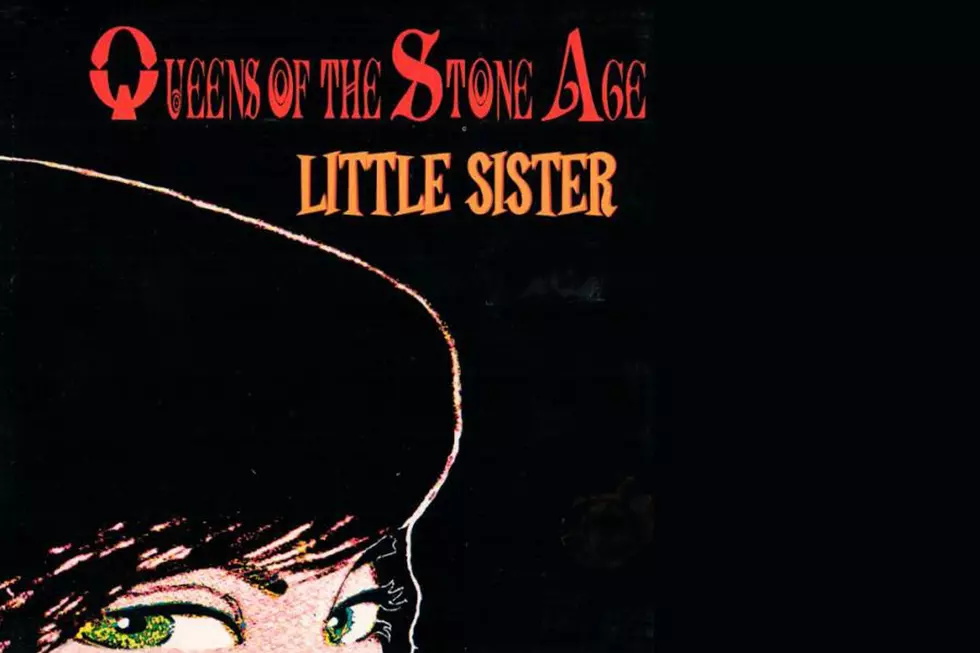35 Years Ago: Richard and Linda Thompson Explore Love’s Dark Side on ‘Shoot Out the Lights’
Shoot Out the Lights, the most acclaimed album by Linda and Richard Thompson, is typically described as the sound of a marriage falling apart. The Thompsons did, in fact, separate just before its March 15, 1982 release, and then divorced not long after. But the roots of this project go much deeper.
Married since 1972, Richard and Linda had already released four albums as a folk-rock duo when Sunnyvista became a decade-ending flop. Chrysalis decided against renewing their contract, and the Thompsons were set adrift. Then a 1980 stint opening for Gerry Rafferty, best known for "Baker Street," seemed to open up new possibilities.
Rafferty became so enamored with his support act that he decided to finance and produce a new Richard and Linda Thompson album. The plan was for Rafferty to shop the finished record to labels, then land the duo a new contract. But things didn’t work out quite that way.
Richard was pleased with the batch of new songs, but he and Rafferty quickly discovered that their recording styles didn’t mesh. “I don’t think it was wholly successful,” a very diplomatic Richard told Rolling Stone. His ex-wife was more direct: “Richard hated it.”
Apparently, so did every record company to which Rafferty shopped the record. It’s been reported that he lost 30,000 pounds on the deal. That left Richard and Linda Thompson with an album's worth of material, but still without a contract.
They eventually entered into a partnership with long-running associate Joe Boyd, who had produced Fairport Convention records when Richard was the group’s guitarist. (Boyd was also previously engaged to Linda, before she became involved with her then-husband.) They signed to Boyd's small Hannibal Records in 1981, agreeing to produce a new album quickly and cheaply in order to save money for an American promotional tour.
Listen to Richard and Linda Thompson Perform 'Walking on a Wire'
Collaborating with Boyd was mostly a breeze for Richard and Linda, after working with the exacting Rafferty. Former Fairport bandmates Simon Nicol (rhythm guitar), Dave Pegg (bass) and Dave Mattacks (drums) came aboard to re-record much of the material the Thompsons had tracked for the previous, failed album. Six of the eight songs on Shoot Out the Lights would, essentially, be do-overs.
That's why Richard Thompson has argued against the notion that Shoot Out the Lights – despite featuring songs about bad relationships (“Walking on a Wire”), leaving your family (“Man in Need”) and death (“Did She Jump or Was She Pushed?”) – is simply a reflection of a couple on the brink of divorce.
“I know people call Shoot Out the Lights a break-up album, but I can honestly say that was never the intention,” Richard told Uncut. “‘Don’t Renege on Our Love,’ ‘Wall of Death’ and ‘Walking on a Wire’ are dark, I suppose. But they were all written a year before we split up, so people can think what they like.”
Linda, on the other hand, wasn’t so convinced. She didn't write the songs, other than a shared credit on “Did She Jump…,” but she had unique insight into the way their relationship – both romantic and musical – was changing.
“It was kind of a subliminal thing,” she told Rolling Stone. “I think we both were miserable and didn’t quite know how to get it out. I think that’s why the album is so good. We couldn’t talk to each other, so we just did it on the record.”
Shoot Out the Lights is admired for its songwriting (which many consider the best of Richard's decades-long career), but also its performances. Recording quickly over just a few days in November 1981 gave the LP a striking immediacy. Richard’s guitar work is fiery but intricate – in particular on the title track, where he adds a prickly rumble. Linda provides a mournful lead on “Walking on a Wire,” while contributing ecstatic backing turns elsewhere.
Listen to Richard and Linda Thompson Perform 'Man in Need'
Linda’s performances are even more remarkable given that she was suffering from spasmodic dysphonia, which causes sudden constriction in the muscles of the larynx. She often couldn’t sustain a vocal for more than a few lines, forcing Boyd to cut-and-paste in order to get complete performances. Because of this, Richard took a few more lead turns at the microphone.
In addition to that, Linda was also pregnant with the couple’s third child, which meant that she wouldn’t be in shape to tour the U.S. until about a half-year after the sessions for Shoot Out the Lights finished. In the meantime, Richard went on a solo acoustic jaunt, during which he fell in love with promoter Nancy Covey. Depending on whom you believe, he left his wife either while she was still pregnant or just after she gave birth to daughter Kamila.
Ironically, Richard and Linda Thompson's new album quickly emerged as a critical favorite while their marriage crumbled. Shoot Out the Lights didn’t make the Billboard charts, but it nevertheless became their best-selling album in America. That inevitably led to talk of a shared U.S. tour, even though the Thompsons were no longer a couple. Linda's friends encouraged her not to do it, but she defied everyone.
“I’m a show-off,” she told the Independent. “And maybe, as well as being cathartic, it was pathetic as well: We had kids and maybe I thought that if we did the tour, Richard – who’d just left me – would change his mind. Yes, it was very pathetic.”
Perhaps predictably, the subsequent tour featured plenty of great musicianship, but also fighting both onstage and off. The duo’s most successful album would be their last. Richard dove headlong into a successful solo career, while Linda’s vocal work would be more sporadic – partly the result of her vocal condition.
In the decades since, this project's reputation has only grown – and not just with fans and critics. “I sometimes listen to Shoot Out the Lights for reference,” Richard confessed in his talk with Uncut. “It’s weird, because as a singer-songwriter you keep revisiting your work, whereas an artist can paint a canvas, sell it and never see it again. Some songs don’t have a shelf life, because the emotions don’t last and the world view is too immature. Then there are other songs where you keep finding something new in them.”
Who Is Really the Next Bob Dylan?
More From Diffuser.fm









